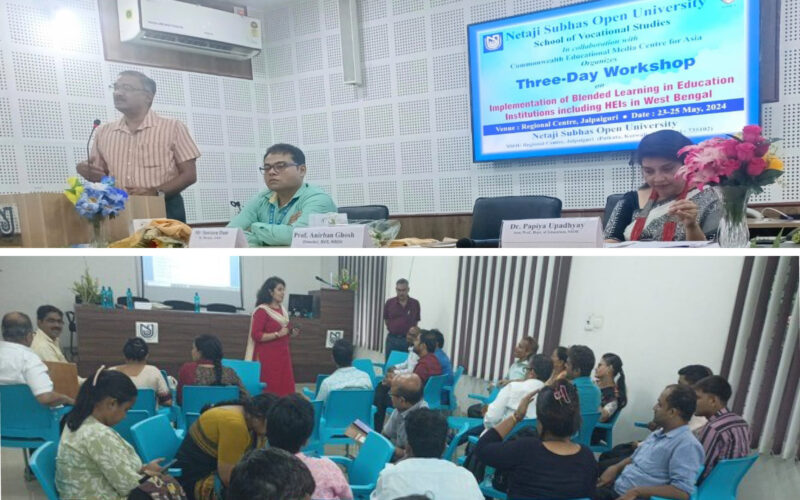
Educators in West Bengal, India, have augmented their digital and blended pedagogy skills through a significant capacity-building project implemented from 2021 to 2024.
“Implementation of Blended Learning in Educational Institutions” is a partnership between the Commonwealth of Learning’s (COL’s) regional centre, Commonwealth Educational Media Centre for Asia (CEMCA), and Netaji Subhas Open University (NSOU), India, and was executed in three phases. The project aligns with India’s National Education Policy 2020, which emphasises increasing the Gross Enrolment Ratio and promoting education for sustainable development.
Through workshops conducted over the three phases, 572 educators were trained across NSOU’s extensive network of Learner Support Centres. The training focused on innovative pedagogies, blended learning strategies, and enhancing teacher performance. The NSOU faculty involved in the training included several education, ICT and project management professionals who employed various methodologies to facilitate the sessions.
Professor Indrajit Lahiri, Vice Chancellor of NSOU, noted the crucial role of blended learning during the Covid-19 pandemic, which accelerated technology integration in education and transformed the traditional classroom model.
Dr B. Shadrach, Director of CEMCA highlighted the project’s incorporation of emerging technologies like Generative AI, which extends blended learning beyond traditional online and offline instruction. This, along with the National Council for Vocational Education and Training (NCVET) initiative supported by CEMCA, enables NSOU to certify and assess skill-based courses tailored to local industry needs.
He observed, “The project’s outcomes have been significant, leading to enhanced student performance, increased access to education for students facing geographical or socio-economic barriers, and flexible course delivery that accommodates working professionals and students with other commitments. Additionally, this initiative has fostered collaboration with institutions and experts, reduced instructional costs, and promoted psychological ease and comfort among learners through problem-based learning and experiential learning mechanisms.”
This CEMCA and NSOU capacity-building initiative marks a significant milestone in transforming education delivery in West Bengal. It sets a precedent for higher education institutions in other states to follow, inspiring a hopeful vision for the future of education in the region.


